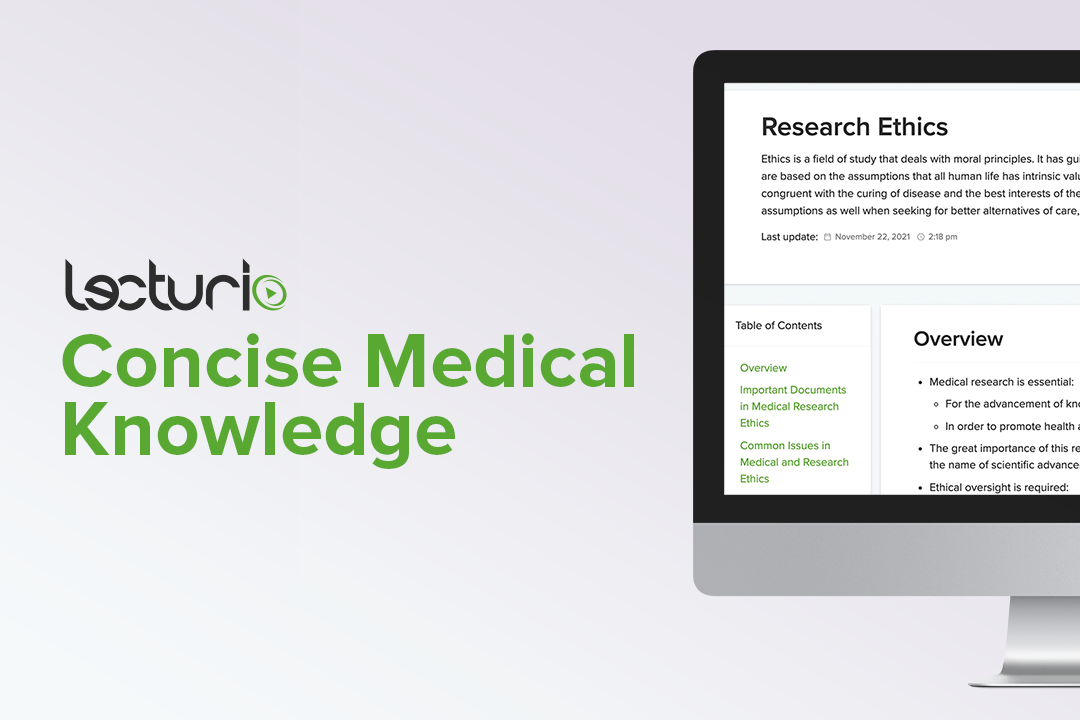Playlist
Show Playlist
Hide Playlist
Misconduct in Clinical Research
-
Slides Misconduct in Clinical Research.pdf
-
Download Lecture Overview
00:01 It's important when we're thinking about responsible conduct of research to also consider times where there is misconduct. 00:08 So misconduct is significant departure from accepted practices in the research community. 00:13 And you know that the person has committed the misconduct intentionally, knowingly or recklessly. 00:21 So it's any kind of scientifically unsound clinical research. 00:24 When that happens, it exposes not only the research subjects to risks, but there's also going to be the inconvenience they've participated in research. 00:33 And now there's been misconduct, it's all for naught, there's no purpose for having had these human subjects, you know, participate in research that then you can't have valid results with. 00:45 And also with misconduct, there's going to be concerns about particular detrimental research practices that violate the traditional values of science. 00:53 And let me talk to you about a few examples of detrimental research practices. 00:59 So for instance, you have your hypothesis, you've created a design for your study. 01:06 But you do not follow the investigational plan. 01:08 you deviate from that, that would be considered a detrimental clinical research practice. 01:14 You don't store your data well. 01:17 You have inadequate or inaccurate records of what you've actually been doing in the research, that would also be detrimental to ultimately having valid results. 01:29 When you're talking about the involvement of a human participant, you fail to obtain or appropriately document their consent to be a participant in the research. 01:40 Another example might be failure to report adverse drug reactions. 01:44 So you've given an investigational drug to a research participant, they've had an adverse reaction, you don't report that. 01:53 So that, you know, wherever the oversight body is, isn't aware of that. 01:58 It might jeopardize future participants in the research. 02:04 When you're actually have collected the data and now are analyzing it, you know, another detrimental research practice would be, you know, not using statistics appropriately, either misusing them or using the wrong statistical technique, in order to analyze the data. 02:21 When you're going to publication, things that are forbidden or things like honorary authorship. 02:26 So just putting a famous person's name on or person's, you know, scientific stature on your publication, even if they have not provided that intellectual contribution to the research or to the manuscript. 02:38 Or even, you know, so far as ghost authorship. 02:40 So somebody else has written it, and then you're just putting your name on it, that's also something that's forbidden, a detrimental research practice. 02:51 There are also concerns and we will talk about this in future lectures about issues of conflicts of interest. 02:57 So where you have a personal interest in impeding or, you know, altering your primary obligation to conduct sound research and when you fail to report that you might have conflicts of interest, that might bias how you interpret results. 03:14 And making that known to the public, you're not being transparent, that's also going to be a detrimental clinical research practice. 03:22 And then, at least in the United States, we have an Office of Research Integrity that will investigate when there are allegations of misconduct. 03:30 And the three kinds of misconduct that they will, you know, try to make a decision on are something called fabrication, falsification, and plagiarism. 03:39 So fabrication, just making up data, you haven't even done the experiment and you're making up results. 03:45 Falsification, perhaps you've done the research, but you alter the results, you don't accurately report them. 03:51 Or plagiarism, taking someone else's intellectual contribution, and not giving them appropriate credit for that work.
About the Lecture
The lecture Misconduct in Clinical Research by Mark Hughes, MD, MA is from the course Clinical Research Ethics.
Included Quiz Questions
What defines misconduct in research?
- Significant departure from accepted practices
- Unintentional departure from accepted practices
- Knowing departure from unaccepted practices
- Reckless departure from unaccepted practices
- Practicing without significant meaning
Which of the following is NOT considered a detrimental clinical research practice?
- Reporting adverse drug reactions
- Failing to follow the investigational plan
- Keeping inadequate records
- Keeping inaccurate records
- Failing to obtain consent
What describes the act of making up data?
- Fabrication
- Falsification
- Plagiarism
- Ghost authorship
- Exaggeration
Customer reviews
5,0 of 5 stars
| 5 Stars |
|
5 |
| 4 Stars |
|
0 |
| 3 Stars |
|
0 |
| 2 Stars |
|
0 |
| 1 Star |
|
0 |




